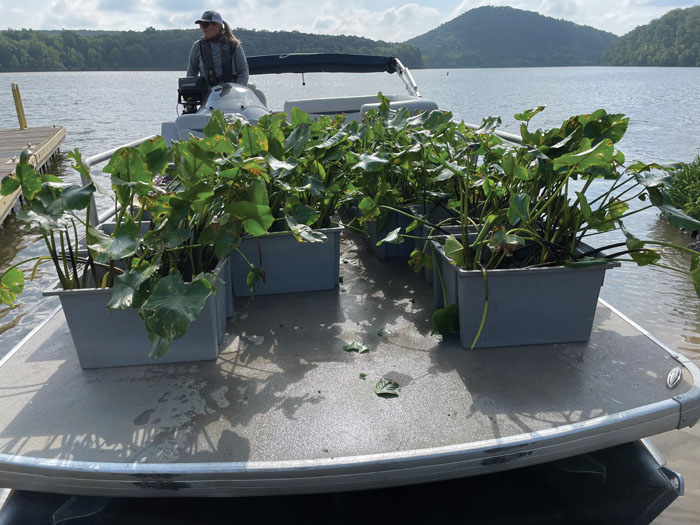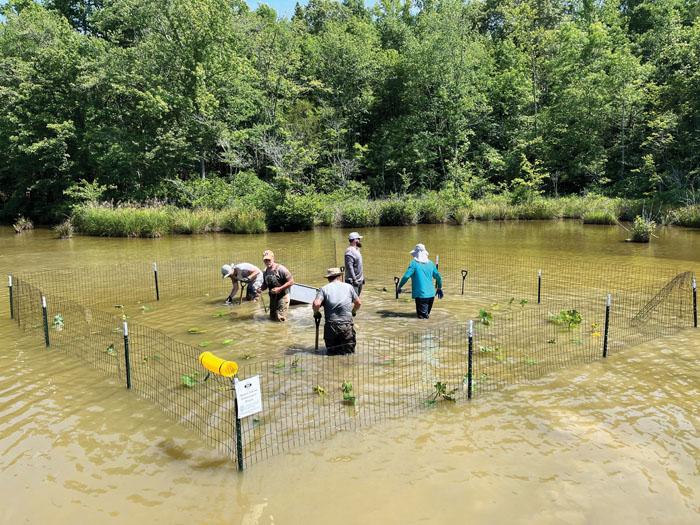NC Wildlife Commission works to promote fish population in Tuckertown Reservoir
Published 12:05 am Sunday, July 9, 2023
For the past three years, the N.C. Wildlife Commission has been making additions to the Tuckertown Reservoir as part of a project aimed at increasing the fish population in the lake. During the past week, they have continued by planting sites with native aquatic vegetation.
The project was started in an effort by the organization to increase fish habitats for anglers, according to Troy Thompson, an Inland Fisheries Biologist with the NCWC.
“You could say it’s for both conservation and to attract more anglers. The two really go hand-in-hand,” said Thompson.
During the past two years of the project, the NCWC added artificial reefs from long-lasting plastic materials and installed them at depths of 10 to 20 feet as well dropping in plastic trees and cabling them in place in order to add natural shoreline habitats. This year was centered around increasing native plant growth in the reservoir.
The vegetation planted in the lake included spatterdock, white water lilies, American pondweed, and coontail. Last year the NCWC planted American lotus.
The young plants were surrounded by fencing in order to prevent turtles and fish from eating the plants and prevent them from growing. The NCWC will also be monitoring the areas to make sure the vegetation is growing as expected in order to provide the best fish habitats.
The project has developed 46 total sites with around 390 structures added to the reservoir according to Thompson.
Thompson also noted that the Tuckertown Reservoir had very good planting conditions. He said that there were good shallow areas, no steep drop-offs, it was not rocky, and the areas got great sunlight.
“The places that I planted are really good. Some that I’ve done in the past in my career haven’t been,” said Thompson.
The reservoir has also run into the problem of a large amount of lyngbya infesting the lake, said Thompson. Lyngbya is an aggressive invasive species of algae that can cause toxins to be released and remain present in the reservoir water.
North Carolina State University is currently working on a project that will help determine methods of controlling lyngbya in the Tuckertown Reservoir and Badin Lake according to the NCWC.






